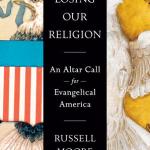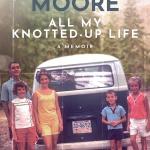This post is part of a series walking through the third volume of Abraham Kuyper’s Common Grace
Even with its patchwork/fragmented direction, science forms a system. We learn about God through this: “It demonstrates the remarkable fact that Wisdom–the Logos or Word–not only possessed personal eternal existence in God, but is God himself.” (532) But, we might wonder to ourselves, doesn’t the Bible condemn human knowledge? Especially when combined with the atheism of so many scientists? Kuyper’s response is that Scripture distinguishes between true human knowledge and false human knowledge. One is excellent and the other destructive. This divide exists because of sin. Sin turns “science against God,” while true science is rooted in God. (533)
But we must not assume that only believers can know true science, and that knowledge of the world doesn’t exist outside of the faith. True and false knowledge is a divide that affects both spiritual knowledge and knowledge of creation. The line between true and false science has to do with motivations and assumptions, not necessarily actual investigation. This leads us astray–in fact science has gone astray, only not utterly collapsing because of the influence of common grace.
Yet, because there is common grace, even the secular world can do real science. In fact, we can understand the state of modern science only if we remember both sin and common grace. God creates geniuses and puts them to work in the world.
Where does sin fit in? Common sense shows us that we still have reason, logic, and observational powers. Yet there is sin in each of these too! Which tells us that sin is rooted elsewhere. It is woven into our broken connection with God, and our inability to see that broken connection. [Here I think Kuyper is somewhat ambiguous–does he mean this just relative to science? If so… eh. Fine. If he means it more broadly, then there might be a mistake at work here… Sin is more than just a systematic something-or-other.] We’re like animals trying to understand a building. We can see the parts of it, but have no grasp of the whole.
So our knowledge of creation is darkened, to where we cannot grasp it however much we understand the parts. Science requires the whole view, which we aim at but which we fail to achieve once we try to understand mankind relative to nature. We can get the details (i.e. how the body works), but not the building (what is the body for in the first place?). Post-Fall we learn by observation. Pre-Fall Adam knew instinctively, maybe? It might be that Adam knew through instant perception of reality. We see something of this in his naming of the animals, and in the fact that some intuitive knowledge remains in us and in creation–spiders spin, we know somethings through a combination of observation and inborn wisdom, e.g. Our post-Fall knowledge still points to God, which is also common grace.
Dr. Coyle Neal is co-host of the City of Man Podcast an Amazon Associate (which is linked in this blog), and an Associate Professor of Political Science at Southwest Baptist University in Bolivar, MO













